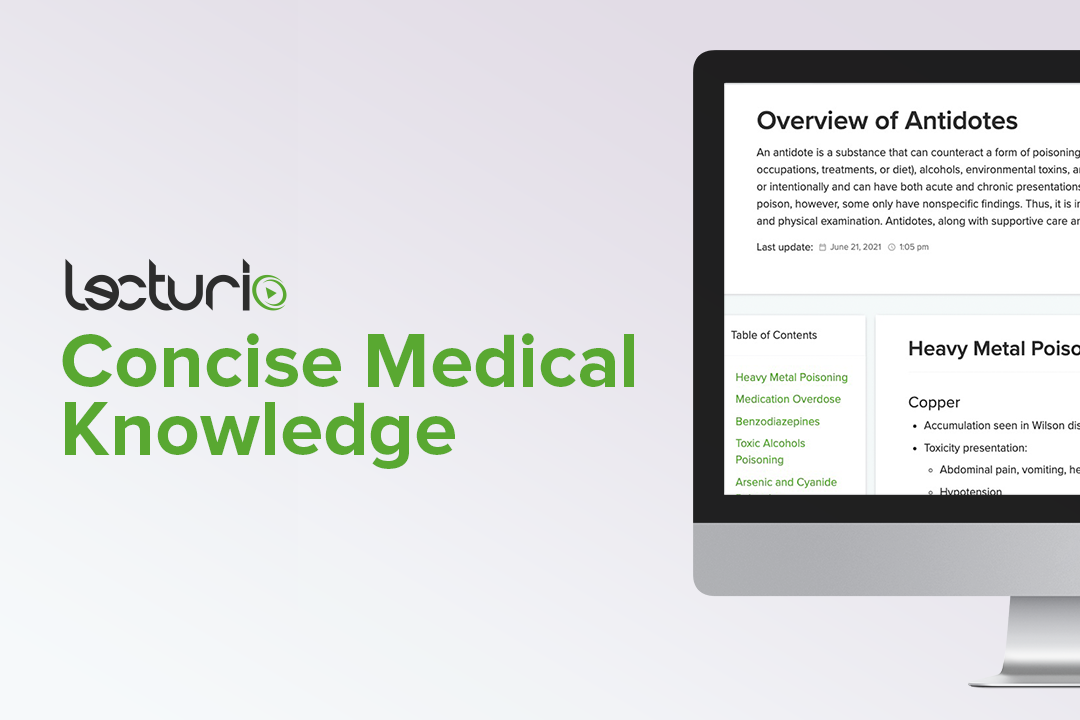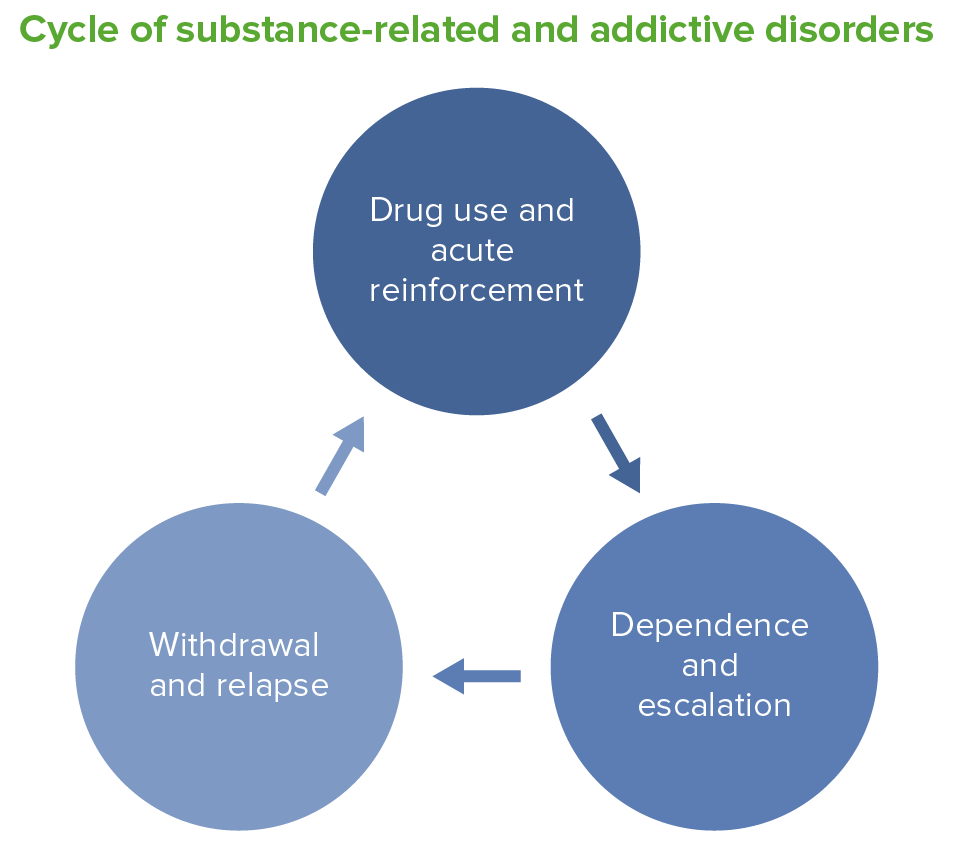Playlist
Show Playlist
Hide Playlist
Acute Management of Drug Overdose in Adolescents
-
Slides SubstanceAbuse Pediatrics.pdf
-
Download Lecture Overview
00:01 Let’s talk about the acute management of a drug overdose. Tragically, this is more common than we think. 00:08 As a patient comes in who is overdosed, it’s important first off to manage the ABCs. 00:14 You’ll see a lot of test questions where there’s a long paragraph describing a circumstance and the answer really boils down to remembering the ABCs. So first, manage the airway, then the breathing, and then the circulation. We should manage hypothermia or hyperthermia which is common in drug use. In patients who have recently ingested a drug, GI decontamination is important, so activated charcoal but this really only works within an hour of an ingestion. 00:43 For patients who have overdosed, naloxone is incredibly useful. We give naloxone and that opiate is immediately relieved. But remember, many of the opiates of abuse have a longer half-life than naloxone itself. So, if you give naloxone and then walk away from that patient and assume everything is okay, in a few hours when that naloxone wears off, that patient may go right back to their overdosed state. So, we need to admit these patients and watch them. I’m not mentioning flumazenil because we don’t use it very often. We don’t use it because it causes seizure in patients a lot, around 20% of the time. So, we don’t often reverse a benzodiazepine but we also may aggressively manage aggressive behavior. If a patient is psychotic and angry and aggressive and dangerous, we may give other drugs to reduce that response. For outpatient management of drug abuse, counseling is the main stain of therapy. So, we are going to counsel these patients about and getting them to be motivated through motivational interviewing to change their own condition. 01:58 Oftentimes, it’s important to set a specific quick date to get them motivated to fix their problem. 02:05 We will recommend frequent follow up appointments to check in to see how things are going. 02:12 When they have a slip, we say that’s part of it and then continue them forward rather than just give up because they slipped. Outpatient psychological therapy is very important and a structured day program may be indicated in patients with severe problems. There are sometimes indications for inpatient treatment. 02:34 For example, if detoxification off of is especially heroine or opiate is needed, that may need to happen in an inpatient setting. We may recommend inpatient treatment if patients have a failure to sufficiently respond to intensive outpatient therapy. We may recommend inpatient treatment if patients are a danger to them self or to others or if there’s a severe medical or psychiatric comorbidity to the problem. But remember, often insurance won’t pay for inpatient treatment. So, we have to work through this financially with our families. So what are the complications of drug abuse? Well, there’s the obvious one is that patients can overdose and they can die from that problem. 03:21 Alternatively, patients with IV drug abuse may suffer consequences of IV drug abuse such as endocarditis, HIV, or hepatitis. The consequences of addiction are profound. 03:36 Patients may result in a life with theft, prostitution, criminal acts to sustain their drug activity. 03:44 Drug addiction is expensive and patients with drug addiction may not have the financial means to maintain it. What’s key about drug addiction is prevention before patients get addicted. 03:59 We should provide guidance on substance abuse with adolescent patients in a therapeutic and supportive way. Parents should be aware of adolescent activities but that’s a tough line to haul because rarely do children who use drugs go first to talk to their parents. A lot of the important parenting happens early in a child’s life before they’re interested in drugs so that they know that the parent-child relationship is a strong one and one they can rely on. We need to help parents recognize protective factors in drug abuse. We should help them understand that creating a positive sense of self-esteem in a child goes a long way to preventing drug use, that supportive family relationships are critical. And children should have positive role models. 04:51 They should have people they look up to who don’t use drugs, who they can admire. 04:56 That will inspire them not to have a life where they’re dependent on drugs for happiness or stability. 05:02 So, that’s my review of drug use in adolescents. Thanks for your time.
About the Lecture
The lecture Acute Management of Drug Overdose in Adolescents by Brian Alverson, MD is from the course Adolescent Medicine.
Included Quiz Questions
Which of the following is a common side effect of Flumazenil, a benzodiazepine reversal agent?
- Seizure
- Hypotension
- Sedation
- Apnea
- Bradycardia
Which of the following is the first step in the management of a patient with drug overdose?
- Assessing airway, breathing and circulation
- Obtaining intravenous access
- Assessing the Glasgow coma scale
- Initiating gastric lavage
- Administering the appropriate antidote
Overdose with a drug from which of the following categories is most likely to respond to naloxone?
- Opioids
- Barbiturates
- Benzodiazepines
- Tricyclic antidepressants
- Organophosphates
Which of the following is not an indication for inpatient management of an adolescent with drug overdose?
- Upper respiratory tract infection
- Detoxification
- Failure of outpatient therapy
- Danger to self or others
- Unipolar major depression
Customer reviews
5,0 of 5 stars
| 5 Stars |
|
1 |
| 4 Stars |
|
0 |
| 3 Stars |
|
0 |
| 2 Stars |
|
0 |
| 1 Star |
|
0 |
Very important topic. I particularly liked to hear your opinion about Flumazenil. Thank you!





